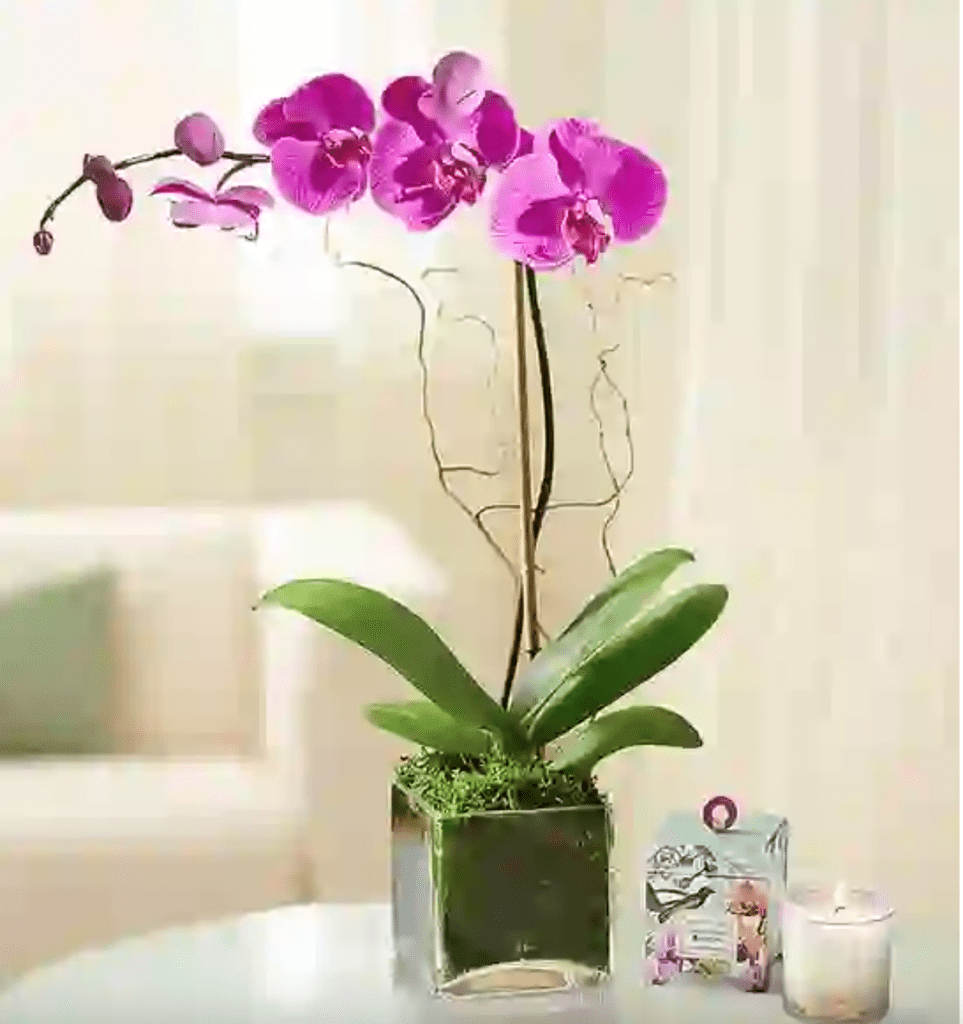Studies Confirm Houseplants Power for Prosperity and Health
By Jill Brooke
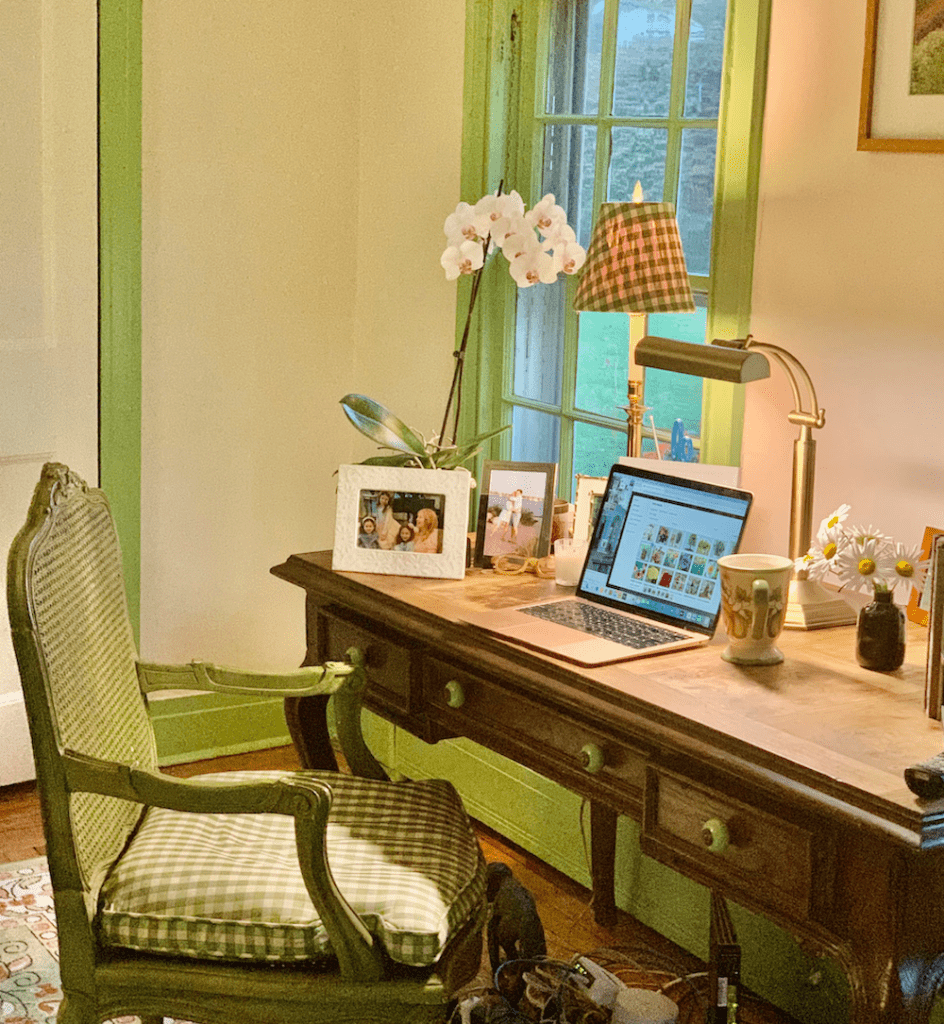
Intuitively, do you surround yourself with flowers and plants because it cheers you up?
Turns out a new study reveals what a series of other recent studies have also confirmed – people like us who put houseplants in our homes and offices are more productive and happier.
STUDIES ON HOW PLANTS IMPROVE PROSPERITY AND HEALTH
According to a new UK survey of 2,000 adults, the ideal working environment includes a variety of plants (40 percent) and bright colors (32 percent).
More than half say being surrounded by greenery makes them feel more productive, and 60% say it makes them feel happy in general, while more than two-thirds saying plants are good for their mental health.
“As a botanist, I am captivated by the expanding amount of scientific evidence that supports what this new consumer research reveals – that being with plants may substantially improve both mental and physical health,” said James Wong, an ethnobotanist and garden designer.
Other studies confirming these results include one from NASA research which found that indoor plants clean the air clean by removing toxins. Houseplants remove 87 percent of volatile organic compounds (VOCs) that are in everything from rugs and grocery bags to paint and vinyl.
Another study by the Identity Realisation research group at the University of Exeter, in association with Indoor Garden Design found that houseplants increase well-being by 47 percent, increase creativity by 45 percent, and increase productivity by 38 percent.
Furthermore, indoor plants can reduce fatigue, coughs, sore throats and other cold-related illnesses by more than 30 percent, in a study found the University of Agriculture in Norway.
I asked the folks at plants.com , 1-800-flowers and Costafarms.com and others to share the most popular choices for office plants and added a few of my favorites as well.
9 BEST PLANTS FOR OFFICES:
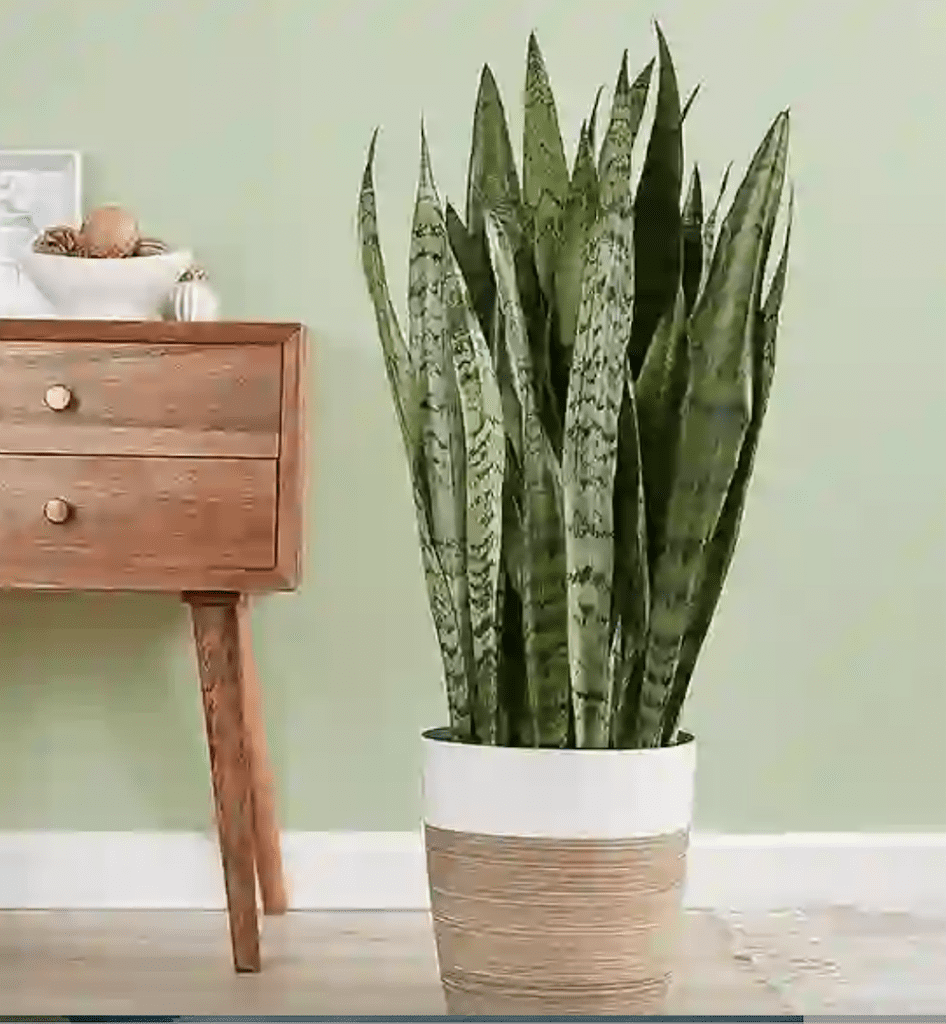
1) Snake Plant
This plant brings a vertical presence and texture to small desk spaces. Perfect for cubicles or open seating offices. A large version is also available for individual offices. This is also known as the plant for novices since it can survive in a shaded, low-light location since its broader leaves make it more energy-efficient and able to absorb more light. When leaves are yellow or wilt, water it. But once a week a cup of water is an ideal routine.
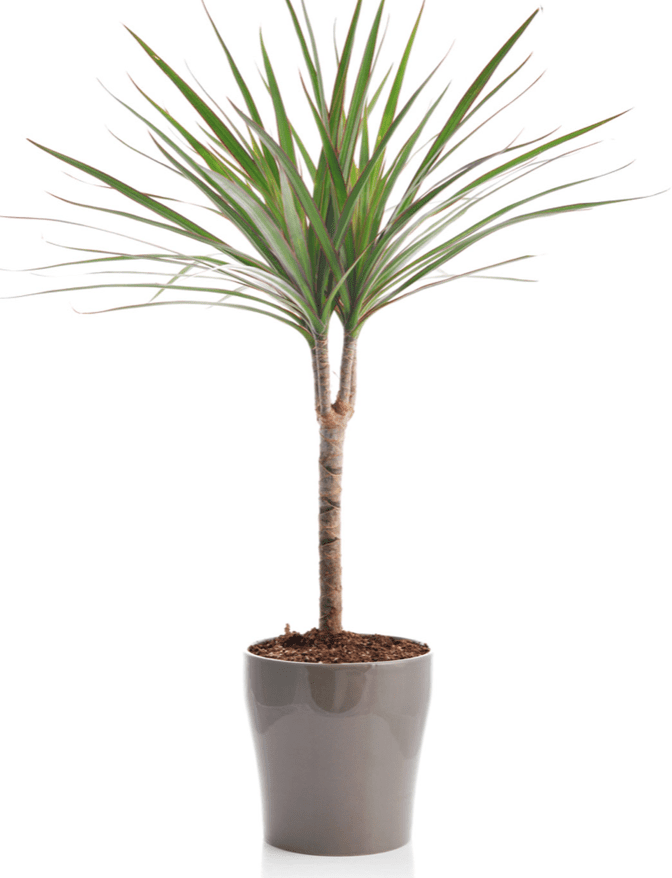
2) Dracena
This plant is ideas for desks because it rarely drops leaves so your work area will stay neat and clean. The mass of thin, strappy leaves are also an interesting focal point.
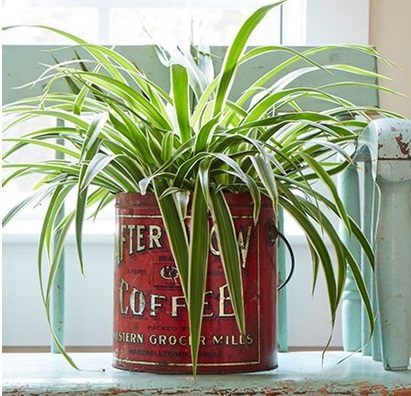
3) Spider Plant
This plant is lso sometimes called airplane plant and is a houseplant that’s withstood the tests of time. This plant is easy to grow, thrives in bright light but also tolerates low light. It doesn’t mind being watered frequently but can go a while without water and still look good. It is just as popular today as it was generations ago! Plus it’s light colored leaves do add charm to the room. Along with the snake plant, it is the best plants for novices who question whether they will ever have a green thumb. These plants will give the budding gardener confidence.
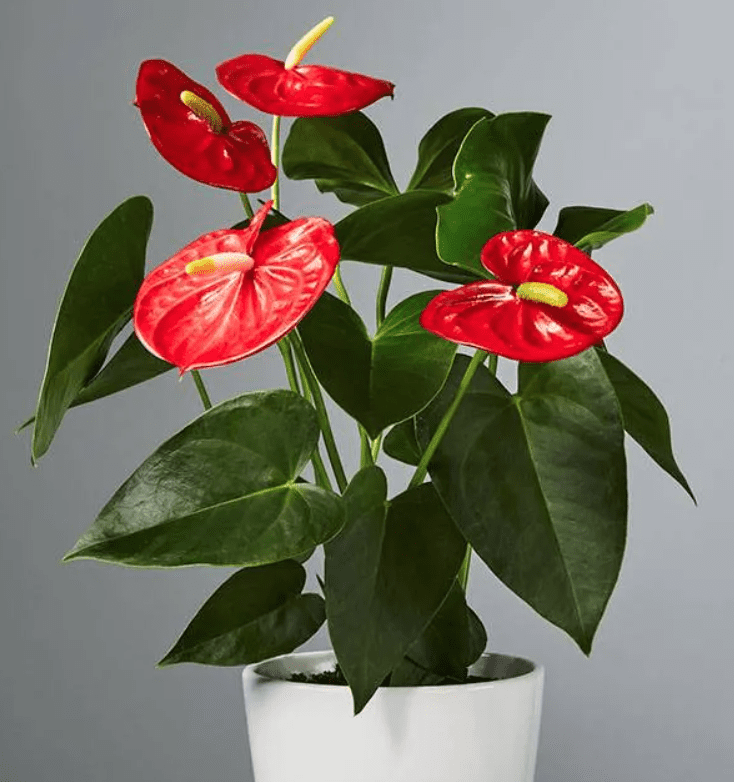
4)Anthurium
This brilliant red anthurium adds the perfect elegant touch to any space. It is sure to cheer up the workplace with it’s heart-shaped long-lasting blooms. Furthermore, breeders are making these beauty in a variety of colors including shades of peach and tangerine.
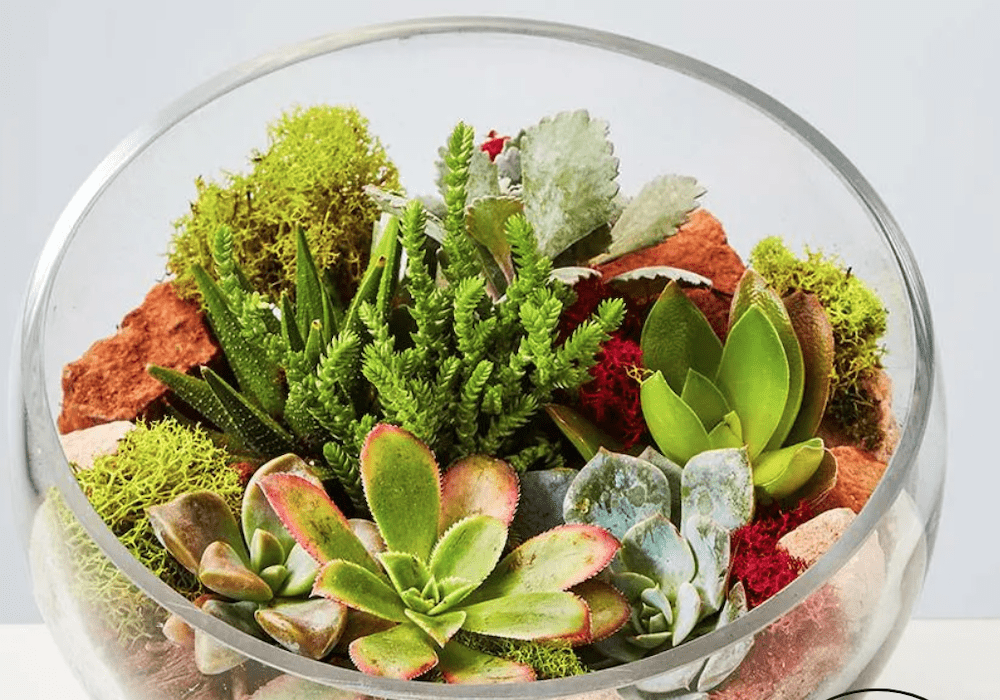
5) Succulent Terrarium
An easy-care option, the bright colors and unique textures of succulents create a bright addition to any office space. Wildly popular and easy to care for, these plants are small so you can put them on desktop or shelf, place several in pots and really be creative. Furthermore, as Alfred Palomares, Vice President Merchandising and Resident Plant Dad, 1-800-Flowers.com says, “They can survive in a wide range of temperatures (40 – 90 degrees Fahrenheit) and only need watering about twice a month, as they are considered drought-tolerant plants.” However, succulents need six hours of light per day, so make sure their spot in the office is sunny.
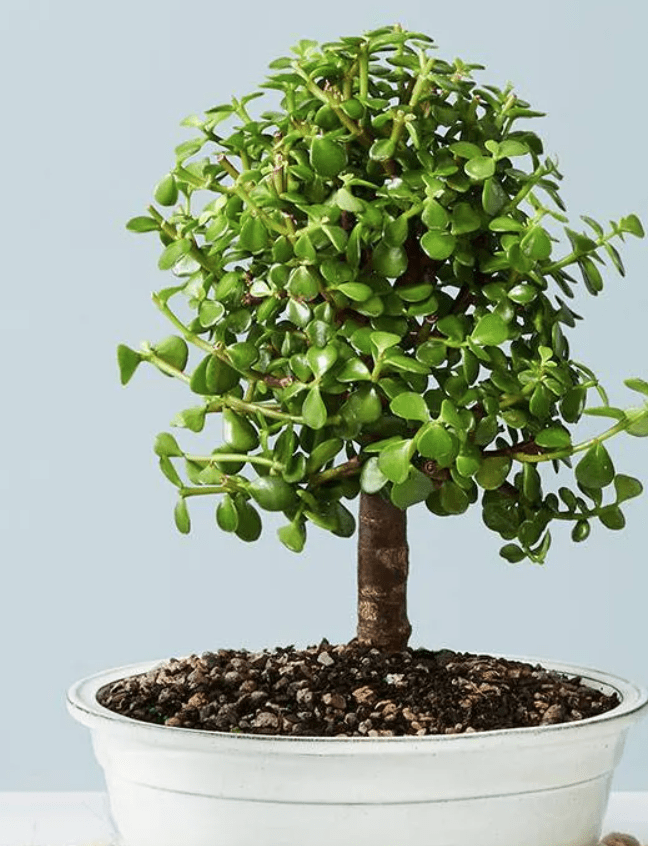
6) Jade Bonsai
This masterpiece will have your coworkers admiring your décor style. Not your usual houseplant, this bonsai creates a Zen space on your desk. They are a bit pricey but are conversational pieces as well.
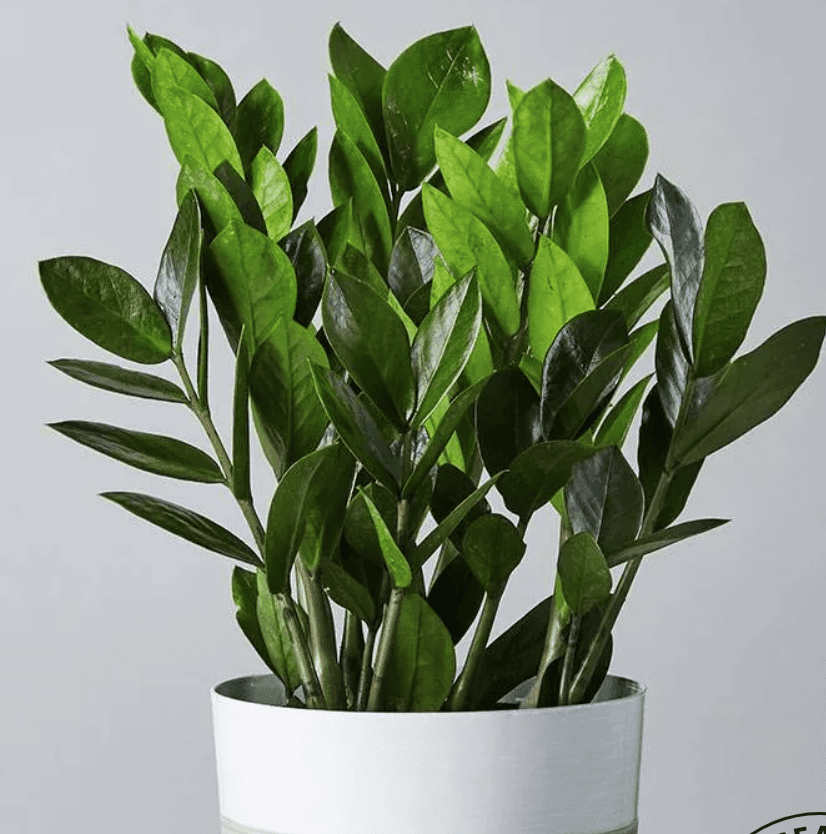
7) ZZ Plant
Tolerant of neglect and happy with low light, this lush and loveable plant says, “Relax, I’ve got this.”
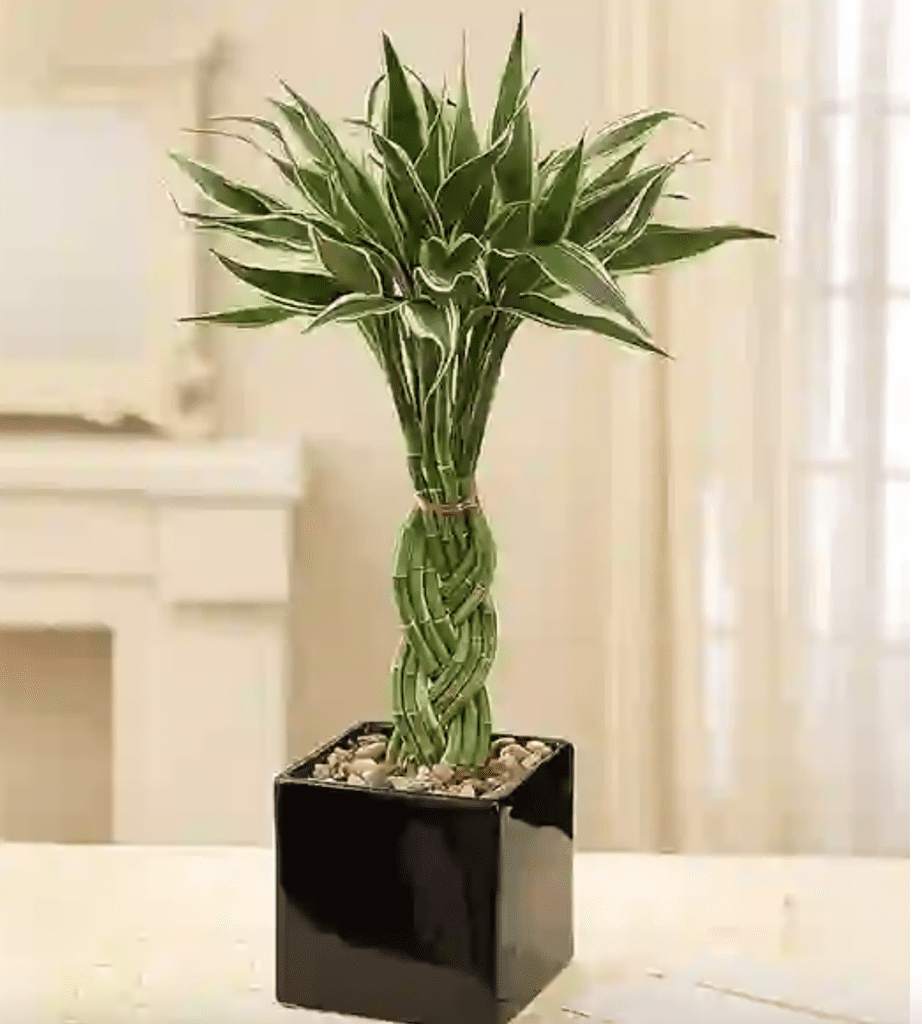
8) Braided Bamboo
Known for prosperity and luck, the Braided Bamboo is easy-to-care-for and grows best indoors, in low-light or artificial light. Bamboo does best in average humidity but be mindful not to place it near a drafty window or heating vent. Its size makes it perfect for any countertop, desk, or shelf, and according to Feng Shui principles will bring positive energy to the space it lives in.
9) Phalaenopsis Orchids
These long-lasting flowers last a few months and don’t require much maintenance. Three ice cubes each week plus being near a window without direct sunlight. Their beauty is known to calm and their modern look is ideal for an office. While most low-light plants prefer a north-facing window, the Phalaenopsis Orchid grows better when displayed near a shaded southern or eastern-facing window. Also here’s a tip. If leaves start to darken, it means the plant needs more light. Another benefit is that they now come in petite sizes which accommodates any workspace.
You may want to consider getting the orchid in a purple shade. In Feng shui, purple means prosperity.
In your office (whether it’s at home or work) identify the far left corner of the room and place purple flowers there. Purple carnations, violets or lilacs are excellent flower choices for this corner. You can also opt for purple plants like a fuchsia orchid or fresh lavender.
One last tip:
When you hear no direct sunlight, what does that mean? “It means that you shouldn’t feel the sun’s rays beaming in or seeing them,” says Sarah Gorda, an associate at Michael’s Nursery. Therefore, keep plants near a window getting light unless the plant is one of the rare ones that don’t require light to thrive like the ZZ plant.
Here at flowerpowerdaily, we like to mix houseplants and weekly flowers for optimal results. Not only do the plants calm your nerves but simultaneously increase productivity which is a far better option than chocolate or caffeine. Plus, the beauty lasts a long time.
Jill Brooke is a former CNN correspondent, Post columnist and editor-in-chief of Avenue and Travel Savvy magazine. She is an author and the editorial director of FPD and a contributor to Florists Review magazine. She also won the 2023 AIFD (American Institute of Floral Designers.) Merit Award for showing how flowers impact history, news and culture

